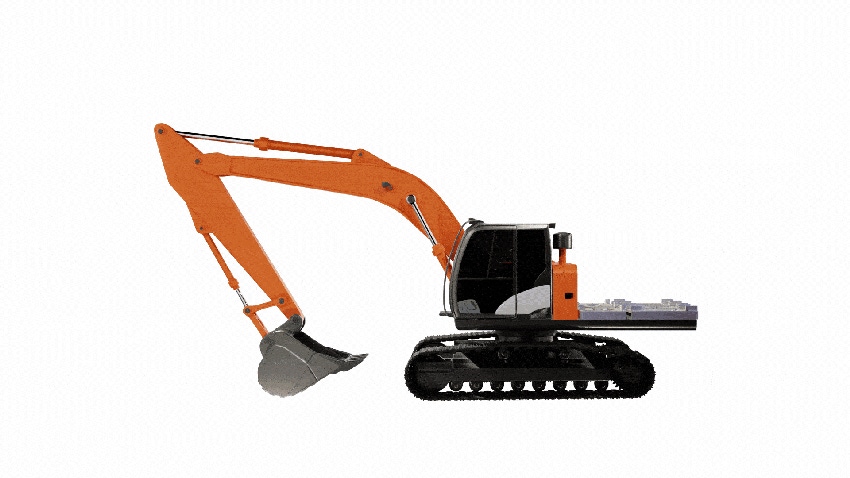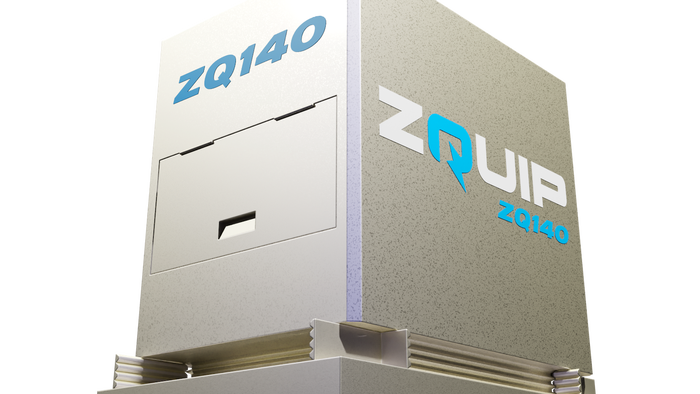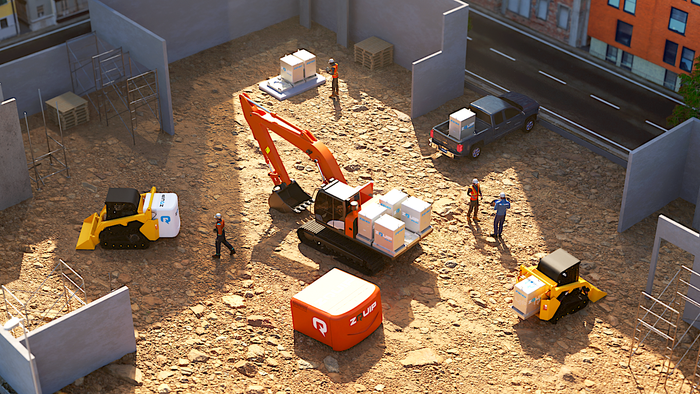Moog’s ZQuip Revolutionizes EV Conversion for Heavy Equipment
Swappable batteries highlight Moog's ZQuip subsidiary's conversion kit to replace diesel power in existing off-highway vehicles.
January 30, 2024

At a Glance
- ZQuip lets heavy equipment operators convert their existing machines from diesel to battery power.
- Modular design lets customers size the battery pack to their needs rather than paying for too much battery capacity.
- Swappable batteries let customers keep equipment in operation without charging delays.
As off-highway equipment operators contemplate the expense of replacing their existing equipment with quieter, cheaper-to-operate battery-electric machines, Moog Construction’s ZQuip division is suggesting an alternative: converting their current diesel fleets to electric power.
ZQuip’s modular system plugs in an electric powertrain and battery in place of the diesel engine in loaders, excavators, and other such vehicles. The conversion kit includes the battery harness, electric motor, and thermal management systems.
Battery modules are available in 70-kilowatt-hour and 140-kWh sizes that can be connected to create 700-volt packs in the size the application requires. Moog points out that buying new vehicles that are all equipped with 800 kWh battery packs, when some of them do jobs that only require 400 kWh packs, means that buyers are paying for more costly battery capacity than they need.
Moog’s modular battery system lets customers size their vehicles’ battery packs exactly to their requirements, so they don’t waste money buying more capacity than they need. The batteries are not only interchangeable across machines as needed, they are swappable, so operators can install a charged battery to replace a dead one when there’s no time to charge, much as you’d swap the battery on an electric power tool.

The ZQuip 140-kilowatt-hour power module. ZQUIP
Alastair Hayfield, Senior Research Director at Interact Analysis points out that 38 percent of the cost of electric off-highway vehicles is tied up in their batteries.
“Operators can manage costs by selecting the number of packs they need for a job, rather than purchasing a very large battery when they rarely need to use all the stored energy,” he wrote in a report for Interact Analysis. “Furthermore, the problem associated with charging – having the vehicle non-operational – is removed since a pack can be effectively swapped in 5 minutes.”
The ZQuip system has Internet of Things connectivity that lets operators monitor their vehicles’ activities and battery life to help ensure maximum uptime. It could also let operators manage their vehicles’ batteries to serve as grid storage, opening a potential new source of revenue for them, Hayfield pointed out.
“The 700V ZQuip Energy Modules are at the core of this innovation. ZQuip modules are interchangeable across any machine we convert regardless of size, type, or manufacturer, and will enable a level of serviceability, run-time, and value that is far greater than current battery solutions,” said Chris LaFleur, managing director for ZQuip.

Artist's conception of a job site featuring ZQuip-powered equipment. ZQUIP
“We are not selling individual excavators, loaders, or other machines,” emphasized LaFleur. To illustrate this point, Moog first demonstrated this concept with a typical CAT 308 diesel-powered 8-ton excavator, creating a powerful, efficient, zero-emission ZQuip battery-electric version.
“Battery swapping for off-highway has potential,” Hayfield concluded, “and we wonder how long it will it be before we see this become more commonplace on construction sites and farms.”
About the Author(s)
You May Also Like



